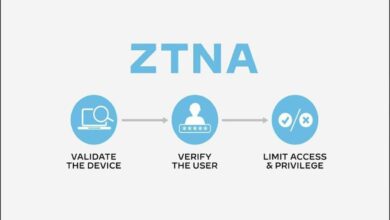In 2024, data science employees may earn higher salaries due to several factors:
High demand: Data science has become an essential field for businesses across various industries. The increasing volume of data generated and the need to derive insights from it have created a high demand for skilled data scientists. The scarcity of talent in the field has driven up salaries as companies compete to attract and retain top data science professionals.
Specialized skills: Data science requires a unique blend of skills, including proficiency in programming, statistics, machine learning, and domain knowledge. Professionals who possess these skills are often in high demand and command higher salaries due to their ability to effectively extract valuable insights from complex datasets.
Business impact: Data science has demonstrated its potential to drive significant business value. Companies that successfully leverage data science techniques can gain a competitive edge, optimize operations, improve decision-making, and develop innovative products or services. The direct impact on a company’s bottom line justifies the higher salaries paid to data science professionals.
Scarce talent pool: The supply of skilled data scientists has not kept pace with the increasing demand. Data science is a relatively new field, and there is a shortage of experienced professionals who can effectively apply advanced analytical techniques. This scarcity gives data scientists more bargaining power and allows them to negotiate higher compensation packages.
Rapidly evolving field: Data science is continually evolving, with new tools, algorithms, and methodologies emerging regularly. Professionals in this field need to stay updated with the latest advancements and continuously upskill themselves. The continuous learning and expertise required contribute to the higher salaries earned by data science employees.
Cost of living and location: Salaries can also vary based on the cost of living in different regions. Data science professionals working in areas with a higher cost of living, such as major cities or tech hubs, may command higher salaries to compensate for the increased expenses.
Industry demand: Data science is not limited to a single industry but is in demand across various sectors, including finance, healthcare, e-commerce, marketing, and manufacturing, among others. Each industry has unique data challenges and requirements, and data scientists who specialize in a particular domain often earn higher salaries due to their expertise in understanding industry-specific data intricacies and delivering tailored solutions.
Big data and cloud computing: The proliferation of big data and the increasing adoption of cloud computing technologies have expanded the possibilities for data analysis and storage. Data science professionals skilled in working with large-scale datasets and cloud-based infrastructures are highly sought after. Their ability to extract insights from massive amounts of data and leverage scalable computing resources contributes to their higher earning potential.
Ethical considerations: As data-driven decision-making becomes more prevalent, ethical considerations surrounding data privacy, security, and bias have gained significant attention. Data science professionals with expertise in addressing these concerns and developing fair and responsible algorithms and models are highly valued. Their ability to navigate the ethical implications of data science work can result in higher salaries.
If you really prepared yourself to start your journey in the field of Data Scientist then do check out Data Science Course.
Advanced analytics and AI applications: Data science encompasses a wide range of analytical techniques, including machine learning, deep learning, natural language processing, and predictive modeling. Professionals who excel in these advanced analytics areas and can develop and deploy AI-powered solutions are in high demand. The complexity and specialized nature of their work contribute to the higher salaries they earn.
Research and innovation: Data science is an active field of research and innovation. Professionals who contribute to advancements in the field by publishing research papers, developing novel algorithms, or creating cutting-edge methodologies often receive higher compensation. Their contributions to pushing the boundaries of data science and driving innovation justify the premium salaries they command.
Leadership and strategic impact: Data science professionals who not only possess technical skills but also have the ability to effectively communicate insights, influence decision-making, and drive strategic initiatives within organizations are highly valued. These individuals often hold leadership positions, such as data science managers or directors, and their ability to align data science efforts with business goals and generate tangible outcomes can result in higher salaries.
Freelancing and consulting opportunities: Data science professionals with a strong track record and expertise in their field often have the option to work as freelancers or consultants. Freelancers and consultants can command higher rates due to their specialized knowledge, experience, and the flexibility they provide to organizations. This autonomy and potential for higher earnings make freelancing and consulting attractive options for data science professionals.
Competition from tech giants and startups: Large technology companies and startups heavily rely on data science to drive their products, services, and business strategies. These companies are often willing to pay a premium to attract top data science talent, creating upward pressure on salaries. The competition for skilled professionals from both established tech giants and emerging startups contributes to the higher earning potential in the data science field.
Continuous professional development: Data science is a rapidly evolving field, and professionals are expected to stay updated with the latest tools, techniques, and industry trends. Organizations that value and invest in the professional development of their data science employees often provide additional compensation for attending conferences, training programs, and acquiring new certifications. The commitment to continuous learning and upskilling can result in higher salaries for data science professionals.
Become a master of Data Science by signing up with this Data Scientist Course in Bangalore.
Remote work and global opportunities: The COVID-19 pandemic has accelerated the adoption of remote work and expanded the pool of job opportunities beyond geographical boundaries. Data science professionals who can work remotely or are open to relocation may have access to a wider range of job opportunities and may negotiate higher salaries to account for their flexibility and the global nature of their work.
It’s important to note that while data science salaries may be relatively high, they also reflect the value that these professionals bring to organizations through their expertise in data analysis, problem-solving, and driving business impact. The demand for data science skills and the associated higher salaries are likely to continue as businesses increasingly recognize the importance of data-driven decision-making in achieving their goals.








